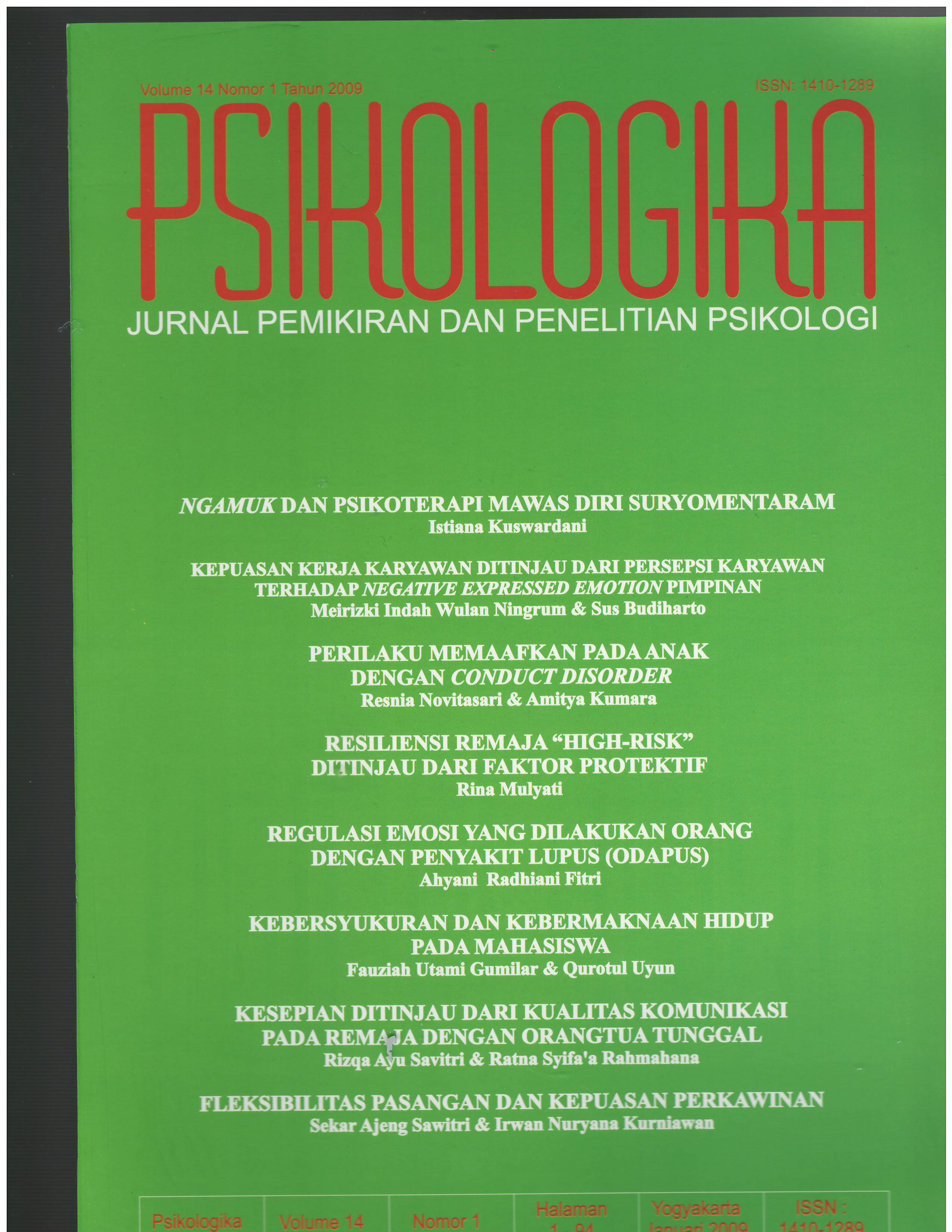Main Article Content
Abstract
This article was aimed to identify the “Mawas Diri Method in Suryometaraman” as alternative psychoterapy approach to reduce outraged behavior (Ngamuk) in Javanese community. In Javanese culture, Ngamuk perceived as a non-specific behavior which characterized with hostile, threatening and dangerous for others. Using content analysis, this reseach then identified that Ngamuk as a common behavior-self-control problem in Javanese people inherrited within as well as influenced by Javanese Culture. The basic asumpsions for this approach was: when the abnormalities come out from a cultural character, then the best way to reduce the occurance of the symptoms was the approach inherrited within the culture itself. The method proposed was Mawas Diri which has 4 steps in its approach: (1) Re-evaluating the “like-dislike” responses (2) Understanding oneself and empathizing the feeling of others (3) Taking actions with “here and now” perspectives (4) Generating the sense of adequateness in responding to life demand. The therapists willing to use this cultural approach to treat Javanese clients with outraged problems, need to take extra precautions regarding to their cultural value, identity and background as Javanese people due to excessive acculturation in Javenese Community.
Keywords: ngamuk, javanese culture, mawas diri, suryomentaraman
Keywords: ngamuk, javanese culture, mawas diri, suryomentaraman
Article Details
License
Authors who publish with this journal agree to the following terms:
- Authors retain copyright and grant the journal right of first publication with the work simultaneously licensed under a Creative Commons Attribution-ShareAlike 4.0 International License that allows others to share the work with an acknowledgment of the work's authorship and initial publication in this journal.
- Authors are able to enter into separate, additional contractual arrangements for the non-exclusive distribution of the journal's published version of the work (e.g., post it to an institutional repository or publish it in a book), with an acknowledgment of its initial publication in this journal.
- Authors are permitted and encouraged to post their work online (e.g., in institutional repositories or on their website) prior to and during the submission process, as it can lead to productive exchanges, as well as earlier and greater citation of published work (See The Effect of Open Access).




